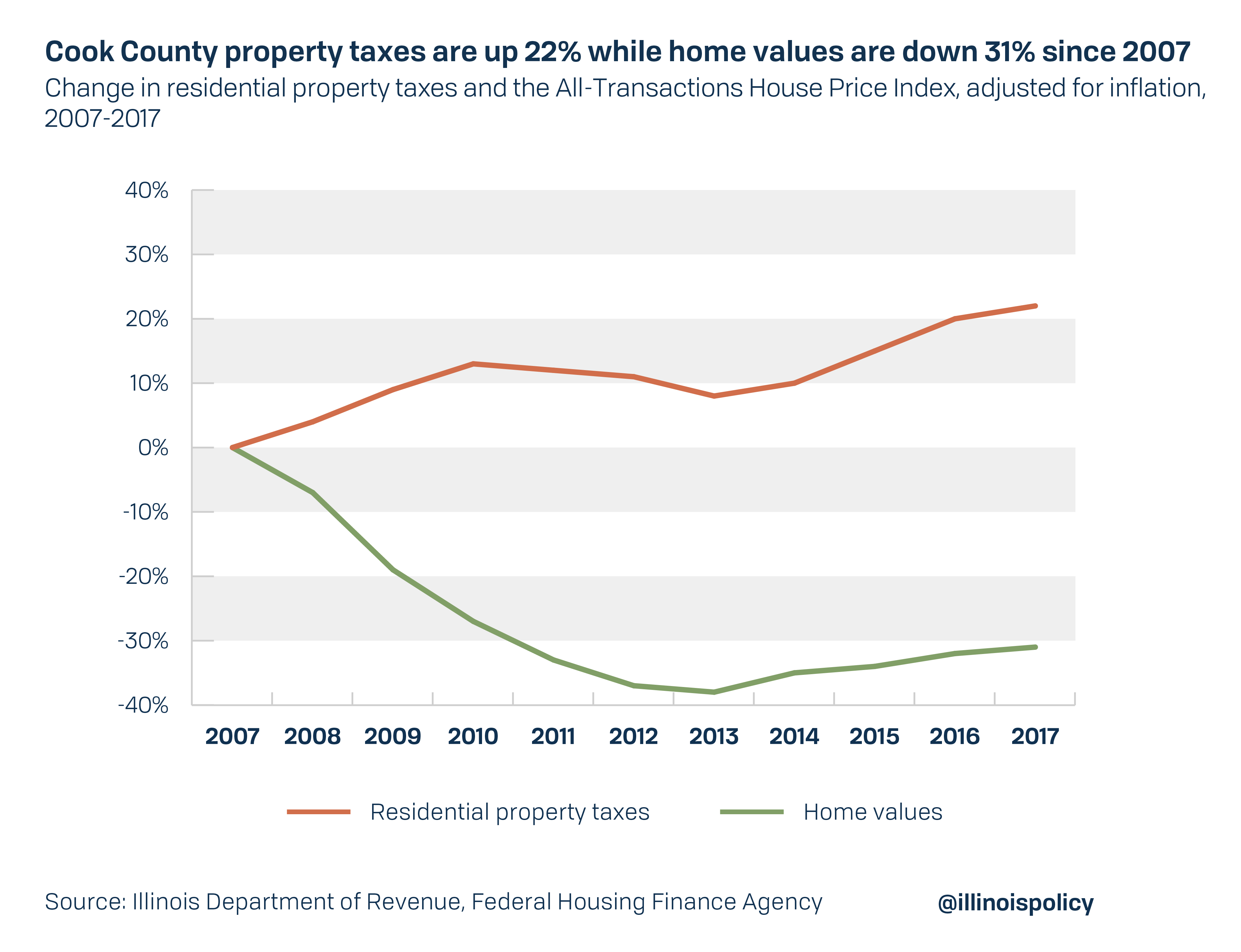Cook County home values down 31%, property taxes up 22% since 2007
Without true pension reform, property taxes are only bound to continue swamping Cook County homeowners.
Cook County homeowners have yet to recover much of the home value they lost after the 2007 housing market crash. But that hasn’t stopped county homeowners’ property tax bills from climbing.
Average home prices in Cook County are 31% lower today than in 2007, adjusted for inflation, according to the most recent data from the Federal Housing Finance Agency.
Even though homes are worth less than they were prior to the Great Recession, Cook County property tax bills have on average jumped by 22%, after adjusting for inflation. Local homeowners felt this pain Aug. 1, when property tax bills in Cook County came due.

Cook County’s poor housing recovery is a national outlier: While home prices nationwide still have yet to return to their pre-recession peak, they are down just 5% since 2007. To put Cook County’s housing plight in perspective, its current decline in average home values is an alarming 500% worse than the nation as a whole.
The biggest factor driving rising property taxes? Unsustainable growth in pension costs for government workers. Pension liabilities have risen faster than taxpayers’ ability to pay, forcing state and local governments to constantly scramble for new sources of revenue – often in the form of property tax hikes.
This diminishes homeowners’ standard of living, and potentially their home equity, while jeopardizing government workers’ retirement security.
With constitutional pension reform, Illinois can protect workers’ already-earned benefits while slowing the accrual of future benefits not yet earned – and eliminate the need for endless property tax hikes.
